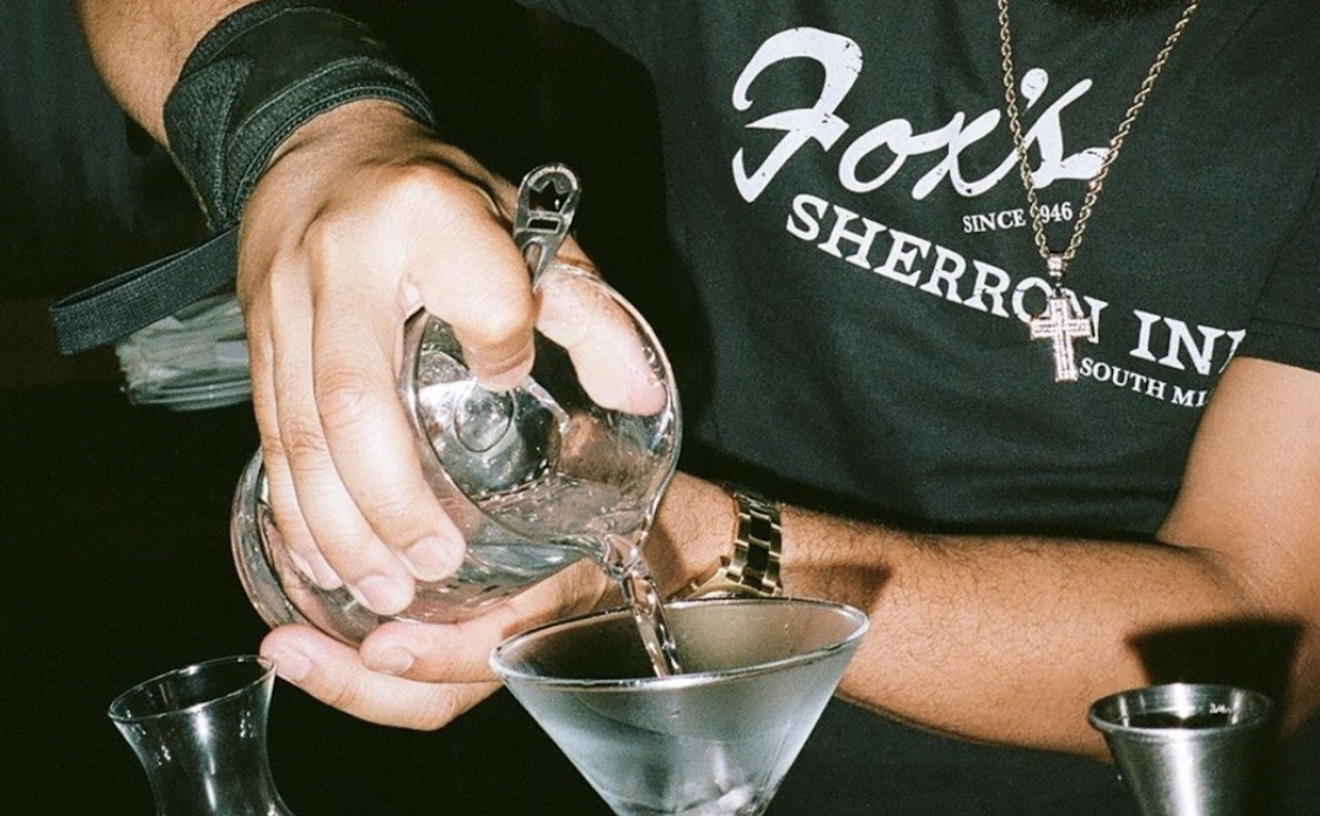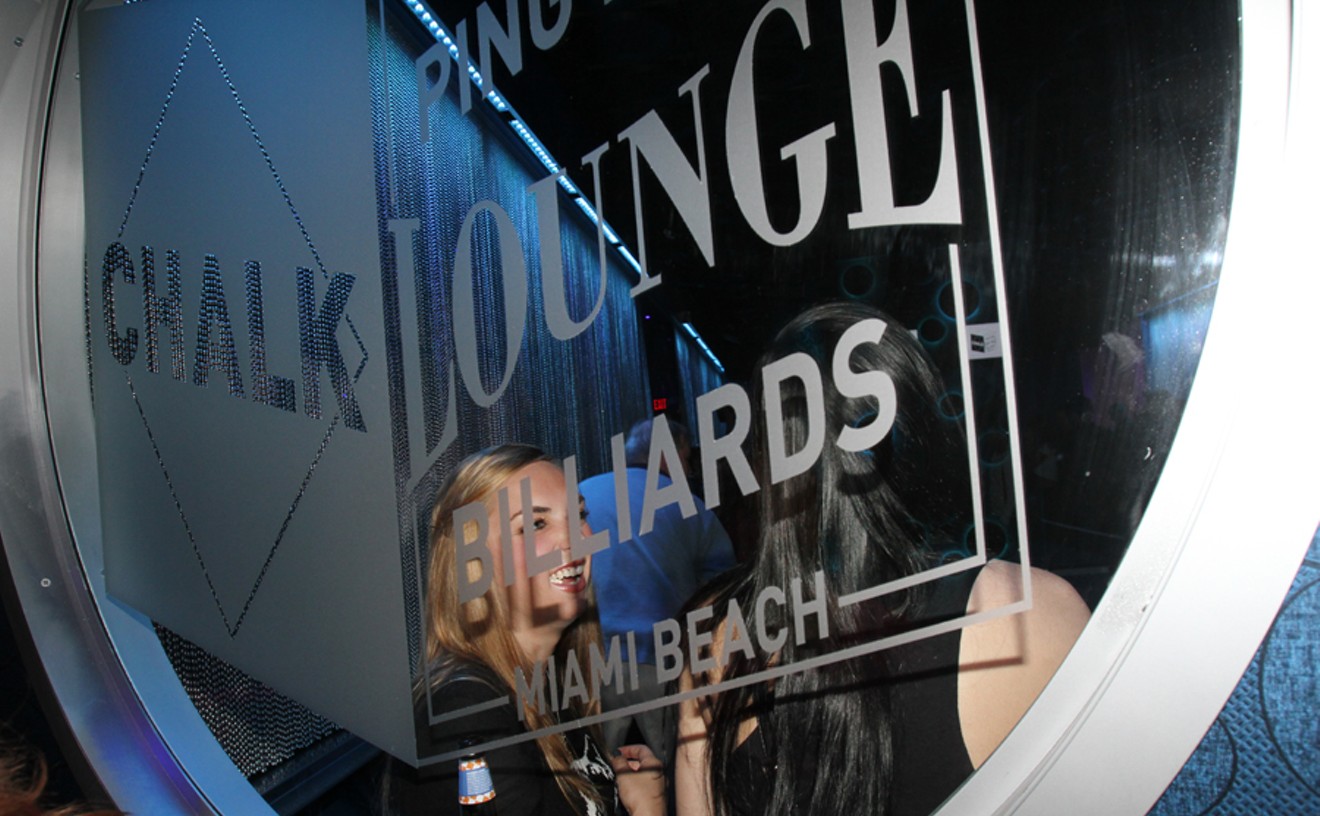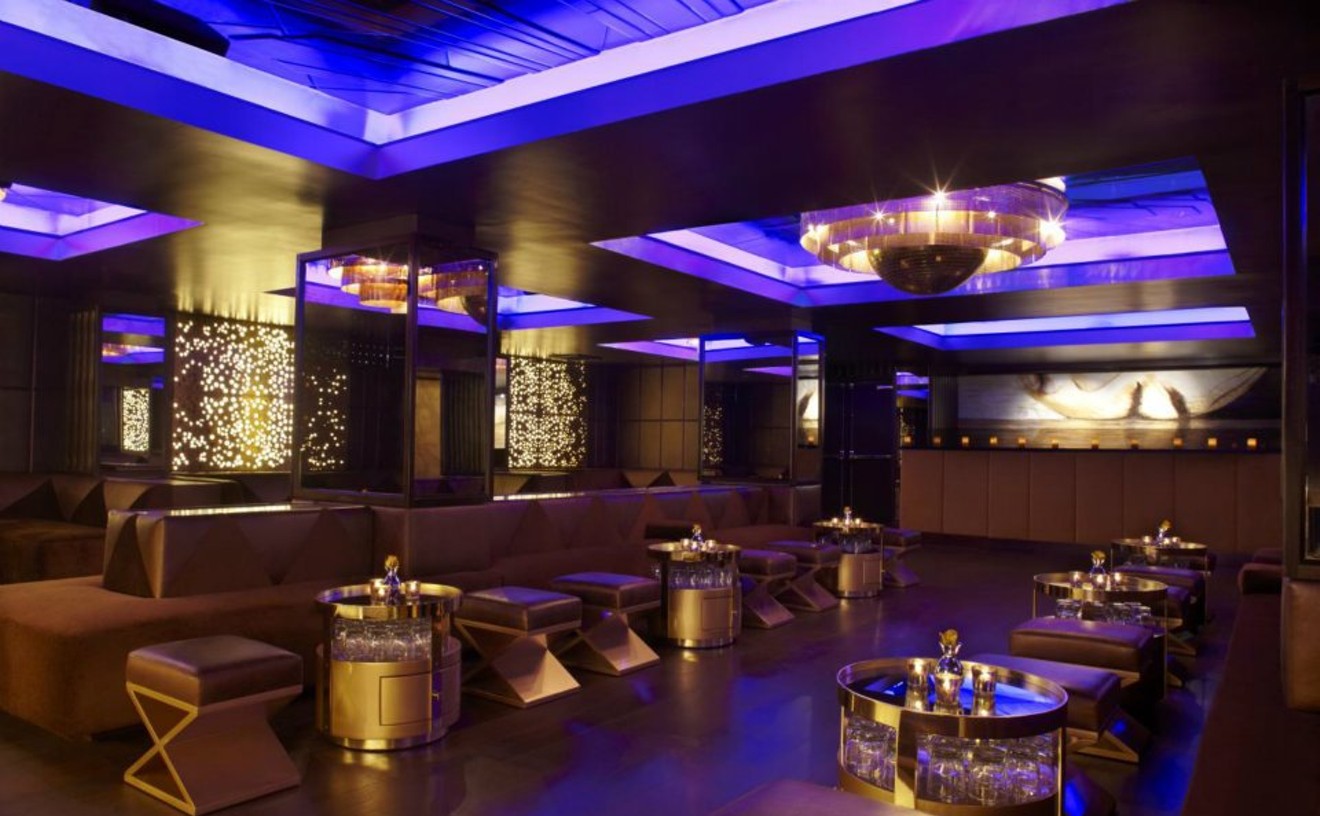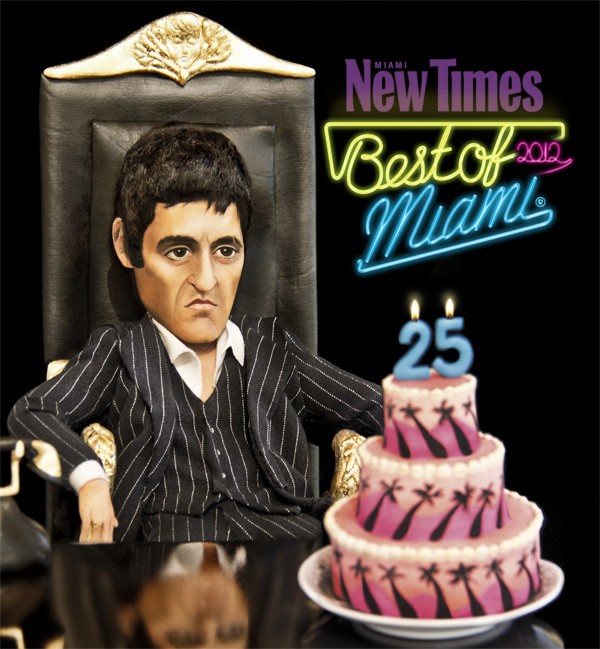Miami may be a tropical paradise, but life in the 305 is still life. You still waste days in line at the dreary DMV, argue with your significant other, get the flu, trap yourself in a cubicle, and eat frozen meals at your desk. But sometimes — on a Tuesday morning when you're stuffing processed muffins down your throat while speeding to work, for instance — you look out the window and think, Holy shit. Where do I live? Westbound on the Julia Tuttle Causeway, connecting I-195 to Miami Beach, the skyline opens up in all its coke-snorting, '80s-era glory. Biscayne Bay shimmers and ripples with speedboats and Jet Skis. To the left of the high-rises, cruise ships churn away from the Port of Miami. Palm trees lining the causeway are adorned with neon halos. The sky is pristine and cloudless or, conversely, before a downpour, a dramatic bruised gray. You can almost hear the synth of the Miami Vice theme song. You still have to make that presentation to your boss today. You still have to slice through the plastic on your mac 'n' cheese before placing it in your workplace's splattered microwave. But knowing you have this drive to look forward to — that this is your commute — makes you feel like the benefactor of incredible cosmic luck. And the fact that the City of Miami once forced sex offenders to live under this very bridge? That somehow just makes your good fortune seem even more miraculous.
Best Radio Station
Radiate FM (WRGP)
In 2004, before he was an Emmy-winning TV producer, DJ Drastic X was one of the first nonpirate radio FM DJs to play Rick Ross tracks. He did it on his It's All Gravy Show on Radiate FM, and the Boss has never forgotten it. The history of this student-run station, affiliated with Florida International University, is marked by a commitment to free-form broadcasting, playing local and independent artists, and representing the diverse musical communities that make up this great area. But whereas Radiate long had a weak signal that restricted its reach to South Dade, the station's recent investment in radio translator technology has amplified its broadcast range so that it reaches most of the county. The station broadcasts on three frequencies: 88.1 in Homestead, 95.3 in Miami, and 96.9 in North Miami. It also streams worldwide on the Web. So whether you're looking for dubstep (Batcave Sessions with Ryan Bats), brutal riffs (Metal Show with Cyrus the Virus), house/electronic (Ravin' and Misbehavin' After Dark with Risto, simulcast live from Korea), riot grrl and queercore (Toxic Shock with Kat Merkin), shoegaze/noise rock (Wall of Sound with Torgo and DJ Count Goldblum), disco (Supernature with Mamey Disco), Latin, African jazz and funk, synthpop, or sports talk, Radiate FM has it. And now, you do too.
Best Local Champion
Lauren Perlstein
Any time a debate about Miami's local music scene occurs, it ends up one big blame game. Promoters don't want to pay. Venues only care about DJs. Bands expect too much. Stop it already! If the Magic City is going to be an indie music mecca, everyone has to work together. That's why Lauren Perlstein is the perfect champion for the cause. Instead of getting mixed up in arguments that go nowhere, she supports the scene the best way she knows how: by writing about it. She and her army of contributors make up the local music blog South Florida Music Obsessed, where she writes plenty about visiting national acts but also shows local outfits lots of love. Talking with her, you can clearly see she is not only passionate about music around South Florida but also knowledgeable. Perlstein is expanding her reach beyond writing. With her Music Obsessed brand in tow, she has begun staging events around town with local music on the bill.
Best Music Blog
Nightdrive
Most music blogs are fine with just throwing up a SoundCloud link, writing a couple of sentences, and calling it a day — but then again, they aren't Miami's Nightdrive. At this corner of the Internet, their job as music masters is taken a bit more seriously. "Down here we find ourselves partaking in a collective redesign of Miami's cultural landscape," they state on their "About Us" link. "Regardless how we got here, we [have become] part of a city that is now struggling to figure out where it's going, how it's going to get there, and what it's going to become." Nightdrive is headed by Laura (of Miami) and Patrick Walsh. There are others too: Terence Tabeau, Steve "Stevezy" Saiz, and their roster of DJs. They also like to feature guest posts from community tastemakers. Nightdrive works hard to bring readers the hottest in up-and-coming artists from many genres, as well as exclusive interviews with rising stars and details about local events. Hell, they even bring music to town, such as the May 24 show with Nightdrive favorite Todd Terje at the Electric Pickle. As Laura put it, the show was "a perfect example of how all the Nightdrive elements work together."
Best Record Label
Maybach Music Group
This is not a record label in the traditional sense. It doesn't produce and distribute records. But Maybach Music Group is the umbrella group overseeing all Rick Ross-involved projects, from the rapper's own albums and mixtapes to those of local supergroup Triple Cs (Gunplay, Torch, Young Breed, and Ross himself). It also reps the rapidly expanding roster of rappers — Philly's Meek Mill, D.C.'s Wale, NYC's York's French Montana — that Ross has pulled into his orbit in the past three years. Most recently, the imprint announced the signing of R&B singer Omarion at a high-profile news conference at Manhattan's Eventi Hotel. It also revealed a blockbuster slate of album-release dates, including this summer's two most anticipated rap albums, Ross's God Forgives, I Don't and Mill's debut LP, Dreams and Nightmares. MMG releases music through not one but two major record labels: Island Def Jam and Warner Bros. This all but ensures that whatever the fate of the declining music industry, Miami will most likely remain a hip-hop power center for years to come.
Best Practice Space
Destroyio House
If your girlfriend, parents, or neighbors think your music sucks and they don't ever want to hear one more note of it, it's time to find your band a practice space. You know, a place where you can turn your amp to 11 and rock out at 3 in the morning without some whiny, soulless bastard crying about the noise. But unless your dad owns a warehouse in an industrial part of Hialeah, you probably don't have that opportunity. Well, now you do. Destroyio House is a roughly 1,000-square-foot air-conditioned warehouse space with tube amps, vocal mikes, a PA, drum gear, industrial fans, and an ice-cold minifridge where punk-rock impresario Fabio Destroyio rents out space for bands to practice music. For just $25 for two hours and $10 each hour after that, you can play any type of music you want, as loud as you want, whenever you want, for as long as you want. That means four people can jam for four hours and pay just about $11 each. When your band is ready, he'll book you a show at Churchill's, and you can use the door money to book more time to practice. You'll find a like-minded community of musicians there already, so you can make new friends, and when your bandmates become whiny, soulless bastards, you can join another group.
Best Jukebox
Fox's Sherron Inn

Since 1946, Fox's Sherron Inn has been serving South Miami with shots, suds, steaks, good times, and jukebox music. But like cigarette vending machines and pay-as-you-go porno peep shows, the classic juke — a partially automated, coin-operated, 400-pound music-playing device with a library of only about 200 songs — is an anachronistic and impractical piece of technology that's slowly but surely disappearing from the American cultural landscape. Our nation's bars, diners, pizza joints, laundromats, and soda-pop shops are getting rid of their jukeboxes at an epidemic rate. And the replacements are satellite radio, iPods on shuffle, and touch-screen MP3 selectors that look like knockoff ATMs from some defunct factory in Taiwan. But thankfully, the Sherron Inn hasn't given up on its enormous, old, occasionally broken music machine. So fill your pockets with loose change, feed Fox's box a few quarters, and pick 119, 142, and 206.
- 6030 S. Dixie Highway, South Miami, 33143 Map
- 305-703-6553
- foxslounge.com
Best Pool Hall
Chalk Ping Pong & Billiards Lounge

You think pool halls and you envision dark, smoky rooms filled with tables covered by worn-out green felt. And until early January 2012, that was probably true. Since then, Chalk Ping Pong & Billiards Lounge has proven the pool hall can also be a sexy place where beautiful people lacking leather vests and tramp stamps can play together. Chalk also has seven Ping-Pong tables in addition to five pool tables, two expansive bars, and VIP rooms. Don't want to miss the game? Don't worry — each bar has a pair of flat-screen TV sets hanging overhead. Prices for a game vary based on the time. Early birds (7 to 9 p.m.) can enjoy a 30-minute game of table tennis or pool for $8. The rate goes up to $10 after that but drops to $5 from 3 to 5 a.m. For pool sharks, Chalk also offers memberships for $50 a month or $500 annually. And a fair warning: Though Chalk is a sexier, South Beach version of the pool hall, it hasn't inherited the Beach's mantra of table reservations, which means waits on the weekends for pool or Ping-Pong at peak hours can be long. That being said, cozy up to the bar and talk to the friendly bartenders while you wait for your name to be called.
- 1234 Washington Ave., Miami Beach, 33139 Map
- 305-532-8662
- www.chalkmiami.com
Best Hotel Lounge
FDR at Delano

There is no denying South Beach was abuzz with the news that Chris Paciello would be returning to the scene with a new project. After years as a guest in federal prison, he found a very different South Beach than the one he encountered in the 1990s. Sure, South Beach is just as vain as it was back then. But the free-spirit, bohemian attitude has been replaced by Vegas-like aspirations of hospitality and entertainment. But Paciello has brought back the old days at FDR at Delano, the Florida Room's former digs. This is a low-light, cavernous space filled with richly textured, expensive-looking décor and pricey drinks. Try one of the signature cocktails for $20 — seriously worth the price — such as the New Deal, made with Bulleit bourbon, peach purée, and ginger beer. Or check out the Eleanor (notice a pattern?), made with Plymouth gin, muddled strawberries, and lemon juice. Cocktails aside, it's what FDR represents that really has us calling it Miami's number one: a return to the ultra-VIP glamour that first put South Beach on the map. Which means just trying to get across the velvet ropes is half the fun.
- 1685 Collins Ave., Miami Beach, 33139 Map
- 305-674-5752
- www.delano-hotel.com





